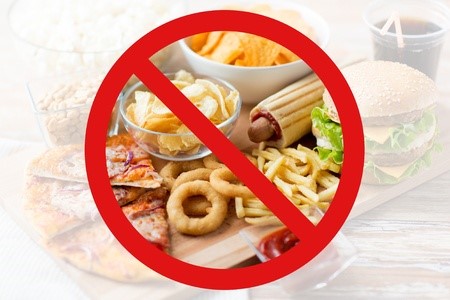 The thing about eating the alkaline way is that unlike a lot of fad diets out there, there’s no one food you can point to that’s bad or off limits.
The thing about eating the alkaline way is that unlike a lot of fad diets out there, there’s no one food you can point to that’s bad or off limits.
For some diets, it’s gluten, for others, it’s carbs, and for others, it’s fat. “As long as you avoid that silver bullet, you’ll be fine,” the thinking goes.
Unfortunately, as you know if you’ve ever tried any of those diets, that doesn’t work. Just banning one food from your plate and eating anything else you want isn’t going to make you lose weight, and it sure isn’t going to get you healthy.
In fact, there are a lot of so-called “healthy” foods out there that even top doctors will tell you to eat, that are actually ACIDIC and terrible for your health and your ability to lose weight.
Today, we’re going to walk through the top 10 unusual suspects – foods you might have been eating thinking you were doing the right thing, when in reality, these foods have been sabotaging your health.
Let’s get started!
1. Chicken and Other Lean Proteins
Most of the conventional wisdom these days will tell you that lean proteins like chicken, pork, and seafood are great for your health. And people think they are. While you might know that red meat increases your risk of cancer, you’ve been told over and over again that lean proteins are “good for you.”
This oversimplifies a huge category of food down to one incorrect label. Within lean proteins, you’ve got:
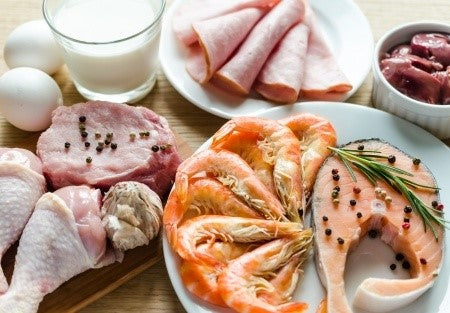 Non-organic, genetically modified meat and poultry that has been raised on antibiotics, growth hormones, and pesticide-laden corn – you don’t want to add that to your body!
Non-organic, genetically modified meat and poultry that has been raised on antibiotics, growth hormones, and pesticide-laden corn – you don’t want to add that to your body!- Farmed shellfish and fish that’s full of mercury and other toxins
- Fatty cuts of pork that were included in the same category as red meat in the study linking those proteins to increased cancer risk. Most people didn’t catch that pork was lumped in there!Pork is probably the most toxic and dirtiest meat you can eat. Pigs digest their food in 4 hours (whereas cows take upwards of 24 hours) and don’t have any sweat glands. Because of this very basic digestive system, toxins in their system do not get excreted. On the contrary, they end up in their muscle tissue, which ultimately ends up in your body when you eat pork. You also have to be very careful of the trichinosis worm which is very common in undercooked pork.
Not only that, but all meat-based proteins are acidic to your body, so they make you work extra hard to neutralize all of that acid.
If you’re going to eat animal proteins, opt for wild-caught, low mercury fish like salmon and cod. If you are going to eat meat, limit your consumption to 2 to 3x per week, and make the meat the side show of the meal, not the main event. Be sure to buy grass fed and free range, and load up on your alkaline vegetables to help neutralize the heavy acids in the meat.
2. Fruit Juice
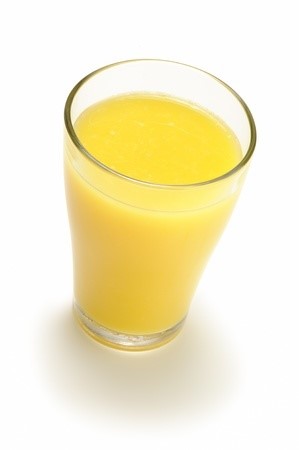 This is one that many of us have caught onto by now (although you would never know it looking at the long aisle full of sugary juices at every grocery store). In fact, the one question about diet our son’s pediatrician never fails to ask is, “You’re not giving him fruit juice, right?”
This is one that many of us have caught onto by now (although you would never know it looking at the long aisle full of sugary juices at every grocery store). In fact, the one question about diet our son’s pediatrician never fails to ask is, “You’re not giving him fruit juice, right?”
In fact, fruit juice contains just as much sugar and calories as a sugary soft drink… and sometimes even more.
The main problem is this… fruit juice contains no fiber and is very high in sugar. And by now, you know that sugar is the most acidic substance on the planet and is the root of all evil!
Take a look at the breakdown for a 12-ounce portion of Coca Cola and apple juice:
Coca Cola: 140 calories and 40 grams of sugar (10 teaspoons).
Apple juice: 165 calories and 39 grams of sugar (9.8 teaspoons).
This is the ugly truth about fruit juice!
Most fruit juices contain a similar amount of sugar as a sugar-sweetened beverage, sometimes with even more total calories!
To make matters worse, when fruit juice is produced, it’s pasteurized, which means it’s heated to a boiling point very quickly to kill any bacteria or germs.
Let me ask you a question… Have you ever had orange juice that tasted any different from any other jug of orange juice? Probably not, because they engineer it to all taste the same.
But have you ever had two oranges that taste exactly the same? Probably not. So why would orange juice all taste the same? It’s because it’s homogenized, stripping the flavor, and yes, the nutrients right out of it.
Stick to homemade, cold-pressed juices made from green vegetables and low-sugar fruits.
3. Butter Substitutes
Some people think they are doing the right thing by avoiding butter and using margarine or even yogurt-based spreads instead because they don’t have cholesterol or saturated fat.
But what do they have in place of saturated fats? Transfats, which are worse for you than saturated fats and more likely to lead to heart disease.
Even the brands than claim to be transfat free can contain transfats up to 0.05% of the ingredients! Stay away from any food that includes partially hydrogenated oils on the list of ingredients because they are the top source of artificial transfats.
This applies to vegetable oils and canola oil as well. They should also be avoided.
Instead, don’t fear the fat! Stick to healthy fats like coconut oil and olive oil. Below 76 degrees Fahrenheit, coconut oil is solid and can be used as a great alternate to butter.
4. Milk
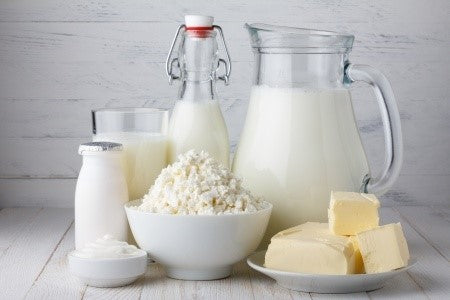 It does a body good, right? Not so much.
It does a body good, right? Not so much.
Despite marketing claims, milk doesn’t have any health benefits beyond human breast milk in infancy. In fact, it is the #1 allergy in children, and is filled with sugar and casein, a protein that is linked to certain cancers in humans.
Like fruit juices, milk is homogenized and pasteurized, killing most of the nutrients right along with any bad bacteria.
You flat out don’t need it. There are plenty of sources of calcium that are much better for you than milk.
5. Fermented Foods
This is a big misconception these days. Foods like sauerkraut, kombucha, and kimchi are sources of prebiotics, which means they help your digestive track naturally produce good bacteria.
Unfortunately, what many people don’t realize is that in the fermenting process, these foods also produce a lot of sugar and yeast, making them very acidic to your body.
In fact, kombucha fermentation is so powerful, it’s actually alcohol. Yes, it’s regulated like an alcoholic beverage because it contains that much alcohol!
Now, I’m not saying that fermented foods are totally bad for you. In fact, there are a lot of healthy probiotics. That’s why they are so popular. But here is my take – if you are taking them for the probiotics, just take a probiotic supplement! You will get billions more probiotic, it will be the most useful strain, and most importantly, minus the acidic side effects!
6. Artificial Sweeteners
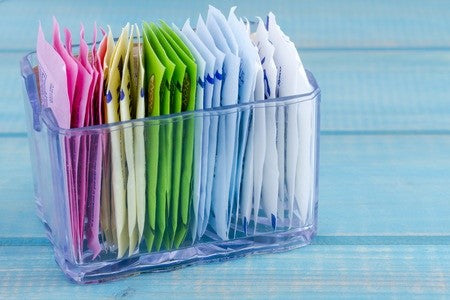 We’ve talked about artificial sweeteners before and how they are one of the worst foods you can eat. People think they are doing the right thing by avoiding sugar and using no-calorie sweeteners, but the health risk is simply not worth consuming these chemicals!
We’ve talked about artificial sweeteners before and how they are one of the worst foods you can eat. People think they are doing the right thing by avoiding sugar and using no-calorie sweeteners, but the health risk is simply not worth consuming these chemicals!
Instead, use natural sweeteners like dates, stevia, lo han (monk fruit), and coconut sugar when you need a little sweetness.
7. Carbonated Water
This is another big misconception. True, carbonated water is better for you than soda because at least it doesn’t contain sugar. However, it does contain carbon dioxide.
Simply put, CO2 is a waste product of breathing. In your car, the gas is the fuel and the carbon monoxide is the waste. If you clog up the exhaust, you choke on the car’s waste and if you don’t get out of there, you die.
The same is true for carbon dioxide. The more CO2 gas in your body, the less oxygen, and eventually, you will choke on your own acidic exhaust. If you love carbonated water and will not give it up, throw a big lemon slice in there to give it some alkalinity.
Carbon dioxide has a pH of 6, which is 10 times more acidic than tap water.Therefore, anything carbonated is bad, whether it’s soda or carbonated water. Stick to water instead.
8. Kefir and Yogurt
Again, the probiotics in these foods are pointless when there is so much sugar and yeast in them. That’s like sending soldiers to fight on 2 different sides of the same war. Between the sugar and the milk proteins, yogurt and kefir are highly acidic.
Take a good quality probiotic supplement and eat plenty of nuts and leafy greens to get enough calcium.
9. Peanuts and Peanut Butter
Now you know I love nuts and nut butters! So what’s the problem with peanuts?
First off, they aren’t nuts at all. They are legumes. And because they grow like other legumes, underground with a soft, permeable shell, they are susceptible to mold and other toxins. Most peanuts grown today have 21 different types of mold on them that produces aflatoxin, a known carcinogen.
Stick with raw almond or cashew butters and a long list of nuts that are great for you.
10. Whole Grains
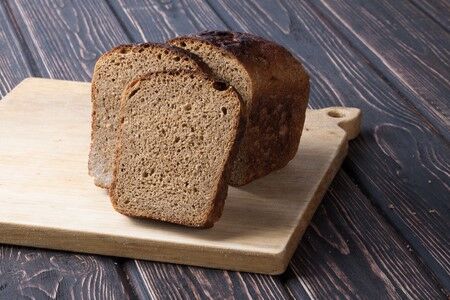 The last unusual suspect on our list might be the most confusing because just like with lean proteins, the term whole grains lumps a bunch of different foods together and calls them all “good for you.”
The last unusual suspect on our list might be the most confusing because just like with lean proteins, the term whole grains lumps a bunch of different foods together and calls them all “good for you.”
There are grains that are nutritious like quinoa (well, quinoa is actually a seed), buckwheat, whole oats, brown rice, amaranth, and spelt.
But along with those, many people and even health authorities assume whole wheat, millet, rye, oats and oatmeal (buy gluten-free oatmeal from Bob’s Red Mill), and bran are just as good. They’re actually acidic and you want to minimize how much you’re eating.
Lots of processed foods claim to have only whole grains, but if you look closely, they’re counting grains you don’t want to be consuming regularly, so watch out for that.
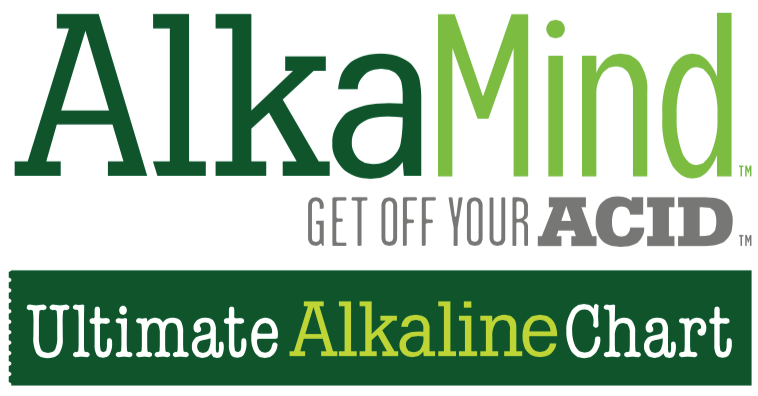 Because there’s so much misinformation out there about so many ingredients, it’s important you have an easy reference source you can trust. Get your copy of The Ultimate Alkaline/Acid Food Chart now for the truth about these foods and hundreds more!
Because there’s so much misinformation out there about so many ingredients, it’s important you have an easy reference source you can trust. Get your copy of The Ultimate Alkaline/Acid Food Chart now for the truth about these foods and hundreds more!
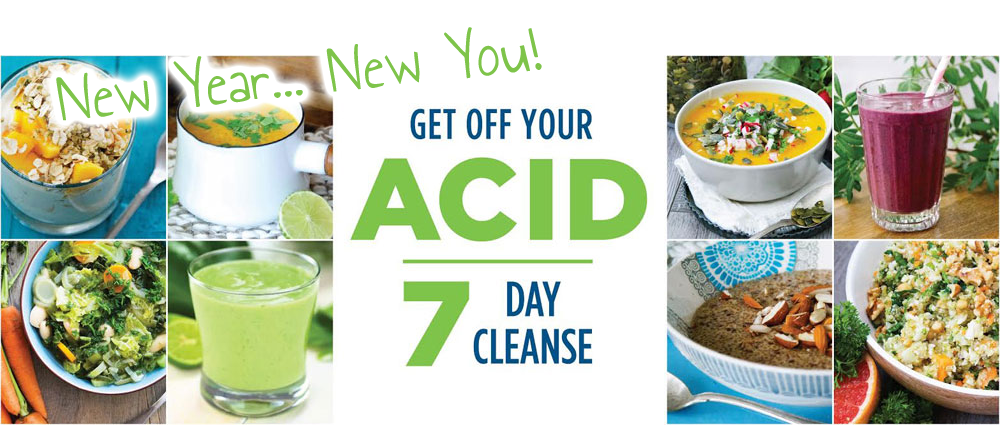
 Skip to content
Skip to content





